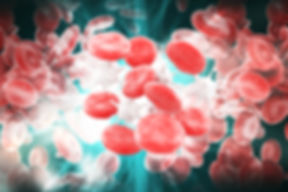
Live Blood Analysis
It's just a wee little poke, I promise
Benefits:
Live Blood is a look at your very own blood terrain. It doesn't get any more personal than that! Blood milieu is observed at 1000x magnification under a darkfield microscope and displayed on a screen visible to the client and practitioner. it can reveal:
-
nutritional deficiencies
-
immune system deficiencies
-
hormone imbalance
-
organ weakness
-
digestive health
-
acidity/toxicity/free radical load
-
inflammation
-
digestion of fats and proteins
What live blood analysis will not tell you:
-
you cannot 'see' cancer
-
you cannot diagnose a specific illness
Live blood analysis is a functional test that is meant to be used as an educational tool. It is not used as a diagnostic tool. Conventional lab tests are recommended to confirm findings.

A little history...
Historically live blood has been studied for over 100 years. Super scientists such as Antoine Béchamp (1816-1908), Professor Günther Enderlein (1872-1968) and Claude Bernard (1813 -1878) studied this subject in great detail. These Doctors' findings have been used to create a widely recognized foundation of theory and practice. They each strongly believed in the principle of pleomorphism which many of their teachings are based upon. Pleomorphism means that a microorganism can change form when it's environment supports it. They believed that disease was a direct correlation with an upward trend in pleomorphism. We all have microbes, they are part of every human terrain, but when the body is deficient in vitamins and minerals or has overextended its toxic load - that's when things start to go sideways. The most primitive microbial development is the Protit, not the cell. Protits are a very normal part of every healthy humans’ terrain and are the basis of all structural microbial materials. The upward cycle of pleomorphism is when protits begin to unify. They can then morph into fibrin or symprotits. Fibrin is a long string of protits, while symprotits are more of a clump or granule of protits. From here the regulatory apathogenic forms become pathogenic forms including thrombocytes, chondrits, ascites, and synascits. Pleomorphism can be clearly demonstrated when viewing live blood cells under a microscope.
Béchamp and Bernard stated that it was all about the internal environment within the blood and that bacterium was a consequence of a polluted environment just as rats and vermin appear when rubbish is dumped because they wish to feed off it.
Bacteria exist all around us yet we do not get sick every time because we have an immune systems that recognizes these organisms and removes them from the body. However, when the body becomes acidic or toxic, it then becomes ‘fertile soil’ for bacteria, yeast, and mold and hence (drum roll please)... disease.
A trained live blood microscopist, such as yours truly, can identify these polymorphic microorganisms and work with you to shift your cells and plasma back into a happy balanced state using nutrition, lifestyle and homeopathic treatments.
